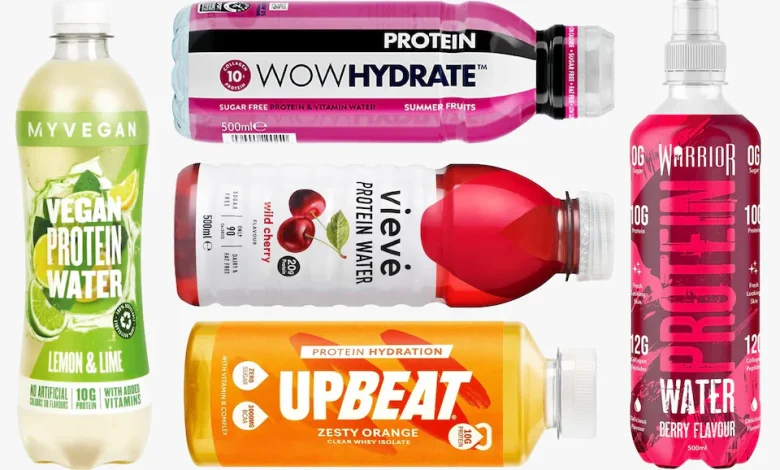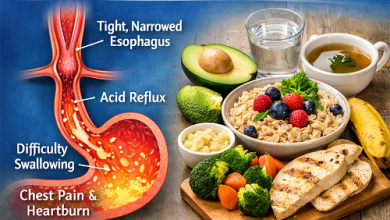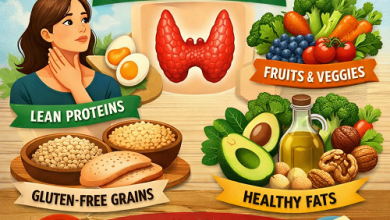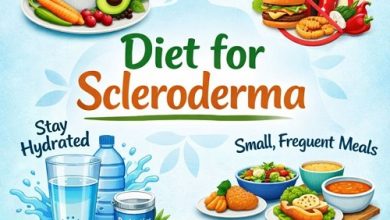The low-cal way to get more protein in your diet
The newest wellness trend, protein water packs in around 10g of protein at only 50 calories per bottle. Are they worth the cost?

The days when only fitness enthusiasts gave protein any concern are long gone. The nutrient is essential for preventing age-related decline in strength and muscle, in addition to being necessary if you’re seeking to gain muscle. Additionally, protein can be crucial for weight loss because it boosts metabolism and reduces cravings for food.
In the UK, our diets provide us with an abundance of it. Salmon, eggs, and chicken are some of the densest wholefood sources. However, you have undoubtedly seen the growing assortment of snack bars, yoghurts, and cereals that have been labelled as “high protein” that have been added to store shelves in recent years.
One of the newest variations of this trend is protein waters. They are free of added sugar and contain less than 50 calories each bottle, with up to 10g of protein every 500ml. Could they provide a protein boost in a healthful way?
The benefits of protein
According to certified dietitian and author of How Not to Eat Ultra-Processed Nichola Ludlam-Raine, “protein is essential for a variety of functions in the body.”
She notes that it is essential for immune system support, muscle mass maintenance, and the growth and regeneration of tissues, including our muscles, hair, and nails.
We require at least 0.75 grammes of protein per kilogramme of body weight to be healthy. For instance, this would imply that a 70 kg person would require 53g of protein per day at the very least.
Based on data, it appears that the average UK citizen consumes more than they need. The British Nutrition Foundation reports that women consume approximately 67g per day when they should only be consuming 45g, and males are inhaling about 85g per day when they should only be inhaling 56g.
But according to Ludlam-Raine, “those who are more active, including athletes or those attempting to gain muscle, may require more – up to 1.2 to 2.2g per kg of body weight.”
This is because, according to her, “exercise only increases this rate of turnover,” as the body is always breaking down and rebuilding protein.
She also suggests that those who are trying to reduce weight should aim for about 1.6g of protein per kilogramme of body weight every day. According to Ludlam-Raine, “it promotes feelings of fullness, which can help with weight management.”
Research indicates that the majority of persons 65 to 89 years old should also strive to consume more protein, as most of them do not consume 0.75 grammes per kilogramme per day. Inadequate protein intake raises the risk of frailty and problems from falls, as well as contributes to the loss of muscle mass.
Can a drink work just as well as food?
“Those who struggle to meet their protein needs through whole foods alone or who are busy people on the go may find protein waters to be a convenient way to increase their intake,” adds Ludlam-Raine.
“Those who want to add protein without consuming additional calories or sugar may find these drinks appealing as they are generally low in calories and sugar.” She adds that as they are water-based, they also hydrate well and help one’s daily fluid consumption.
Protein water is not necessary for the ordinary individual, though, if they eat a balanced diet. According to Ludlam-Raine, it is preferable to meet your protein needs by eating whole foods like dairy, eggs, chicken, fish, lentils, and poultry because they are sources of protein that are higher in nutrients.
This is because, although protein waters provide the same amount of protein as a salmon fillet, the fish has higher levels of B vitamins and omega-3 fatty acids than the drink does.
How to add them to your diet
This also applies to their protein supply. Collagen peptides, for instance, are sourced from cows and are present in Wow Hydrate and Warrior protein waters. It is said to be beneficial for the joints, nails, hair, and skin. Whey protein isolate, which is regarded as the best for muscle growth, is used to make My Protein and Upbeat.
Trisodium citrate, citric acid, and phosphoric acid are common acids included in protein drinks that improve flavour and serve as preservatives. To improve tastes, zero-calorie sweeteners like sucralose can also be added. Sweeteners have been linked to increased appetites for sweet foods, according to research, and it’s important to remember that some people may experience stomach trouble when using them.
Preservatives, like sodium benzoate, which stop the growth of bacteria, yeast, and mould, and concentrates, like safflower and black carrot, which serve as natural colourants, are other often used ultra-processed ingredients in the drinks.
Ways to include them in your diet
Ludlam-Raine advises against using protein water as a replacement for nutrient-rich foods like lean meats, fish, dairy, eggs, lentils, and nuts, preferring to think of it as a handy complement to a balanced diet. She continues, “But they’re not a meal replacement.”
Between meals, she advises sipping protein water in the middle of the morning or the afternoon. According to her, this distributes protein consumption throughout the day to maximise absorption.
According to Ludlam-Raine, “it’s important to consider how frequently these ultra-processed foods are consumed in your overall diet.” Protein water on occasion is not harmful if whole, minimally processed foods make up the majority of your diet. However, relying too much on them could result in a diet deficient in vital nutrients that are present in whole meals.




